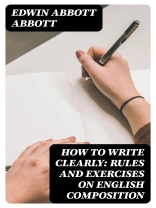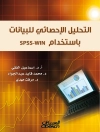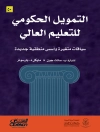Edwin Abbott Abbott’s ‘How to Write Clearly: Rules and Exercises on English Composition’ serves as a quintessential guide to effective English writing. Abbott employs a pedagogical approach that interweaves didactic principles with practical exercises, fostering clarity and precision in composition. The book’s structure is meticulous, engaging readers with rules that navigate the complexities of language while promoting a style that is both accessible and instructive. Set against the backdrop of early 20th-century educational reform, Abbott’s discourse reflects an era keenly focused on literacy and clear communication, lending the text a timeless relevance in today’s often convoluted linguistic landscape. Abbott, a distinguished Victorian scholar and educator, was profoundly influenced by the evolving dynamics of language and teaching during his time. His multifaceted academic career, coupled with a passion for clarity in expression, drove him to compile this manual. Abbott’s experience in diverse fields, including theology and mathematics, provided him with a unique perspective, enabling him to draw connections between rigorous thinking and effective writing. ‘How to Write Clearly’ is an essential read for students, educators, and anyone seeking to refine their writing skills. Abbott’s insights serve not only as rules but also as a philosophical guide towards developing one’s voice in writing. This book invites readers to engage with language thoughtfully, ensuring that their writing resonates with clarity and purpose.
Circa l’autore
Edwin Abbott Abbott (1838-1926) was a distinguished 19th-century English schoolmaster and theologian, renowned for his scholarly contributions, particularly in the realm of literary education and religious studies. Abbott was born in London, and was educated at the City of London School and St John’s College, Cambridge, where he excelled academically and later became a fellow. He is most widely recognized for his satirical novella ‘Flatland: A Romance of Many Dimensions’ (1884), which offers both a critique of Victorian social hierarchy and an exploration of the concept of multiple dimensions through geometric allegory. His writing style is characterized by clarity and conciseness, traits which are masterfully expounded upon in his instructional work ‘How to Write Clearly: Rules and Exercises on English Composition’ (1876). This particular book reflects his extensive knowledge of the English language and his passion for pedagogy. It provides practical advice on writing with precision and reason, and serves as a testament to his dedication to the art of communication. Abbott was also deeply involved in theological debate, authoring several books on religious matters, including ‘Philochristus’ and ‘Onesimus’. His impact on English literary education extended beyond his published works, notably influencing teaching practices through his career as an educator.












